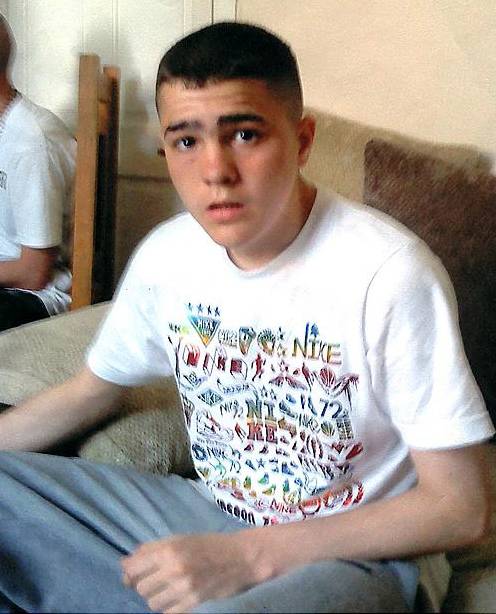Speed and drink led to driver’s death crash
Reporter: Lewis Jones
Date published: 15 July 2011

MATTHEW FRICKER
No blame on police over pursuit of stolen car
A HIGH-SPEED police pursuit did not cause the death of car-crash victim Matthew Fricker.
At the conclusion of a two-day inquest yesterday a jury ruled that a lethal mix of alcohol and erratic driving caused the tragic events of September 19, 2009.
Mr Fricker, of Royton, was celebrating his 20th birthday on the day he crashed a stolen Nissan Micra into a wall and lamp-post in Oldham Road, Denshaw, in the early hours of the morning.
A jury of 10 yesterday delivered a unanimous verdict at Oldham Magistrates’ Court.
Jury spokesman Martin Kemp said: “The deceased had an alcohol level in his system well over the drink-drive limit. We believe the combination of this and excessive speed of the vehicle on a severe bend due to his lack of judgement caused the accident.”
The court heard how PC Colin Whaley had first started following the car, also carrying James Peters (18) and another 16-year-old passenger, after the Micra made a sharp U-turn close to the M62 motorway.
Shouting the word “urgent” down his radio, PC Whaley could only relay limited details to the control room during the pursuit in which he accelerated to up to 80mph in the unmarked police car.
But the jury decided that the advanced police driver had done the right thing despite a lack of communication due to a signal black spot.
The spokesman said: “We have considered whether the police pursuit contributed to the accident. At best we consider this to be minimal having noted the Micra was being driven at speed before he realised he was being followed.
“We believe the failings of the pursuit were beyond the officer’s control and that he acted wholly appropriately in the circumstances.”
The inquest had earlier heard how the car snaked and swerved along Ripponden Road at speed.
Descending into Denshaw village the Micra’s lights were even switched off for a period as it travelled down the wrong lane, before completely uprooting the lamp-post in the collision.
The backseat passenger walked from the car but James Peters, who survived with knee and neck injuries, had to be cut free while Mr Fricker was said to be unresponsive and with a weak pulse.
Mr Fricker, who died from head injuries two days later, was breaching a curfew order and was subject to a driving ban.
The pursuit lasted only 1 minute 51 seconds and covered a distance of 2.9 miles.
Mr Fricker’s parents, Tania Wrigley Fricker and Paul Fricker, said all their questions had been answered.
Mrs Fricker said: “There were 300 people at his funeral and it just shows what a popular person he was.
“People do silly things. We’ll never get over it, you just have to find a coping mechanism to deal with the loss.
“We’ve never had any blame as to who has done what, the police have constantly been in contact. They’ve treated us with respect and Matthew’s name too.”
Insp Martin O’Connor, the senior investigating officer, described his death as a dreadful waste of a life and the last outcome that the police would have wanted.
Coroner Simon Nelson said that he could not condone Mr Fricker’s actions and that had he not suffered fatal injuries he would have faced criminal allegations and a stay in custody.
But he added: “He clearly brought a lot of pleasure with his personality to his family, particularly to his sister and grandmother.”
His organs were donated to seven people in total, a decision he had made before his death.
Most Viewed News Stories
- 1The Oldhamers handed awards in King’s New Year’s Honours List
- 2You can score free tickets to a Latics game while supporting Dr Kershaw’s Hospice
- 3Primary school in Uppermill considers introducing new ‘faith-based’ entry criteria to tackle...
- 4Public inquiry announced into rail upgrade that could leave villages ‘cut off’ for months
- 5Tributes paid following death of hugely respected Oldham community figure Dale Harris




